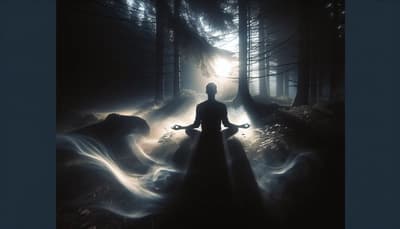Wisdom & Philosophy

Learning from Mistakes as Wisdom: How Insight Grows Quietly
Not every lesson comes softly. Sometimes, wisdom grows where we stumble—tender shoots rising from the ground of our mistakes. Here, you’re invited to walk gently with your missteps and discover the simple, living insight that unfolds from listening, not just knowing.

The Western Self: Shadows, Stories, and the Search for Meaning
In the quiet hour, the idea of self ripples just beneath awareness. In western traditions, the self is both explorer and mapmaker—casting reason like a lamp across the unknown, searching for traces of a good life amid shifting stories and the ache of becoming.

Awakening Beyond the Ego: Remembering Who You Really Are
What if most of what I called “me” was only a protective shell? Searching for my true essence never felt as blissful as the books promised. This is how I learned to recognize my real self not through escaping my ego, but by listening to what it was protecting all along.

Dharma in Modern Life: Finding Your Path When the World Feels Overwhelming
There are seasons when standing at the crossroads of your own life, especially in midlife, can feel almost unbearably tender. Dharma in modern life isn’t about a single destiny; it’s about listening to the quiet truth beneath all the noise and honoring each next small step as sacred.

Non-Duality vs Duality: Awakening to Awareness When the Mind Splits
The first time I heard the words “non-duality,” my mind instantly pushed back: If everything is one, why does life feel so splintered? Grappling with the pull between non-duality and duality — between unity and separation — often made my search for awakening feel more like an intellectual puzzle than a real, embodied experience. This is how the journey started to change when I let my questions be part of the path.

How to Observe the Ego: Turning Gentle Attention Toward the Quiet Self
Have you ever caught yourself lost in a swirl of self-judgment or defensiveness, wondering—how to observe the ego without getting swept away? Many seekers long to see the ego’s patterns clearly, to step beyond them, yet often feel tangled in confusion or self-critique. This reflection will offer human ways to witness the dance of ego, share subtle self-inquiry questions, and invite a gentle awakening beyond old patterns.
